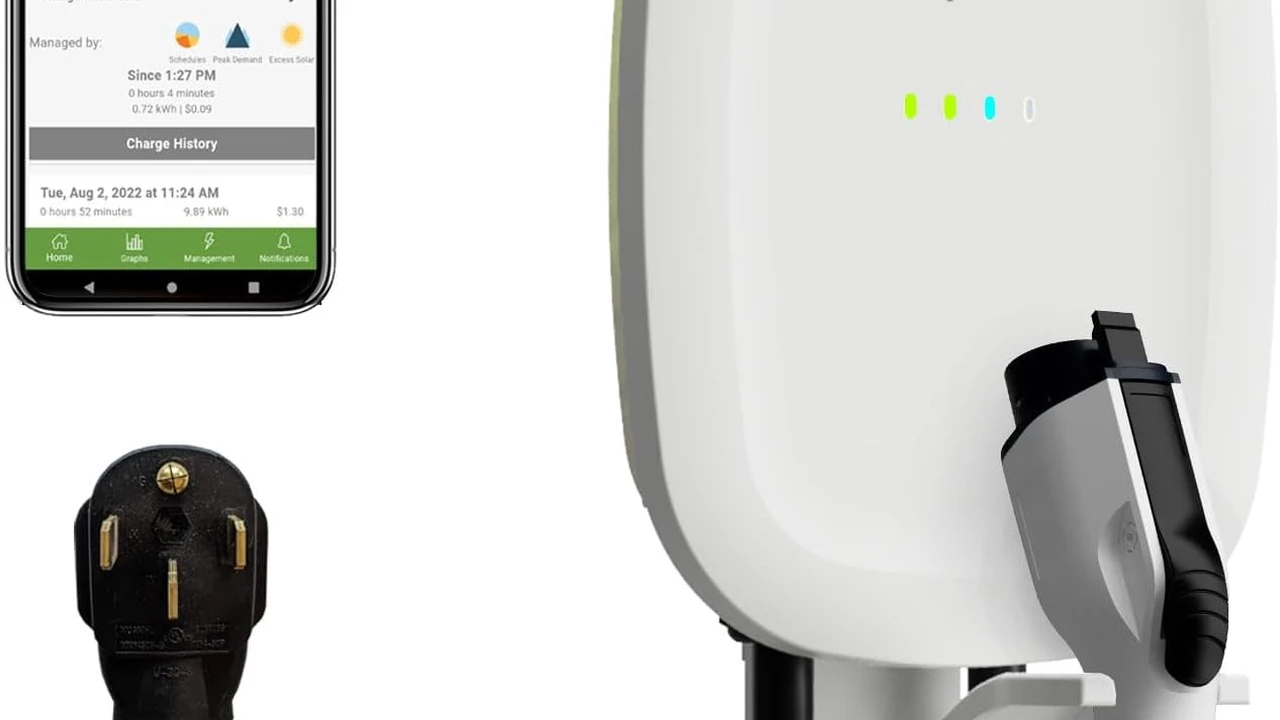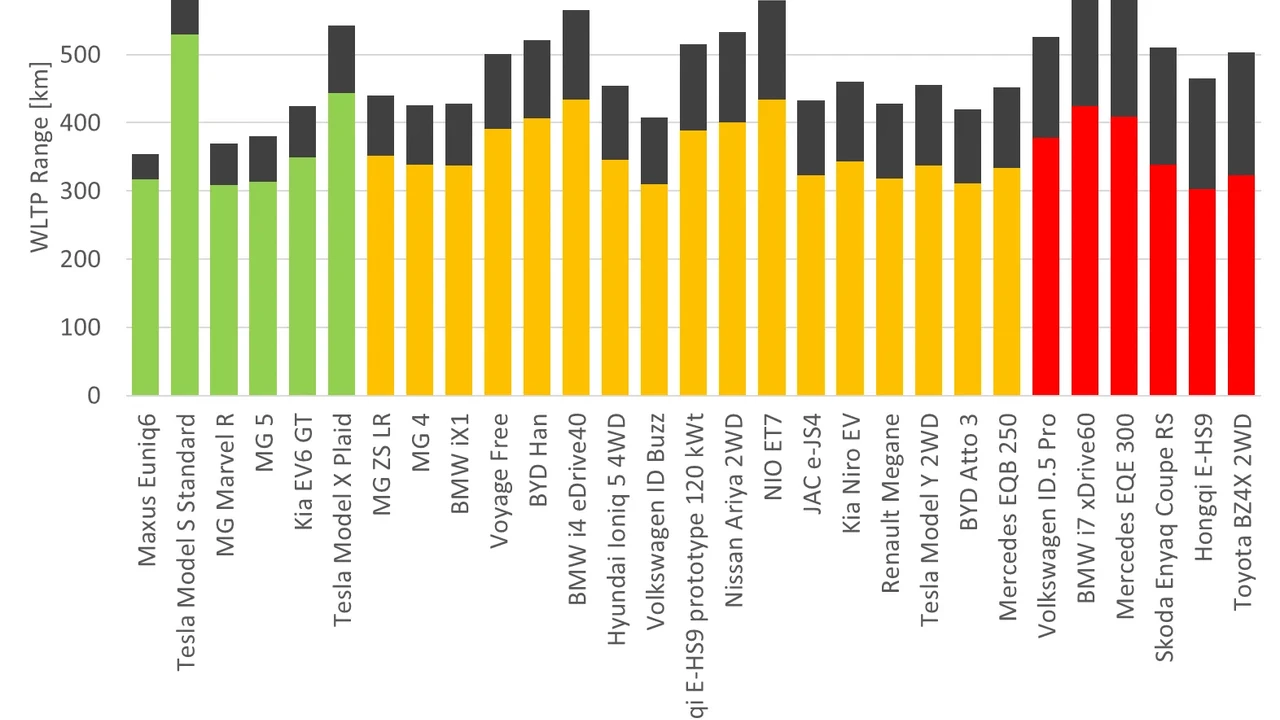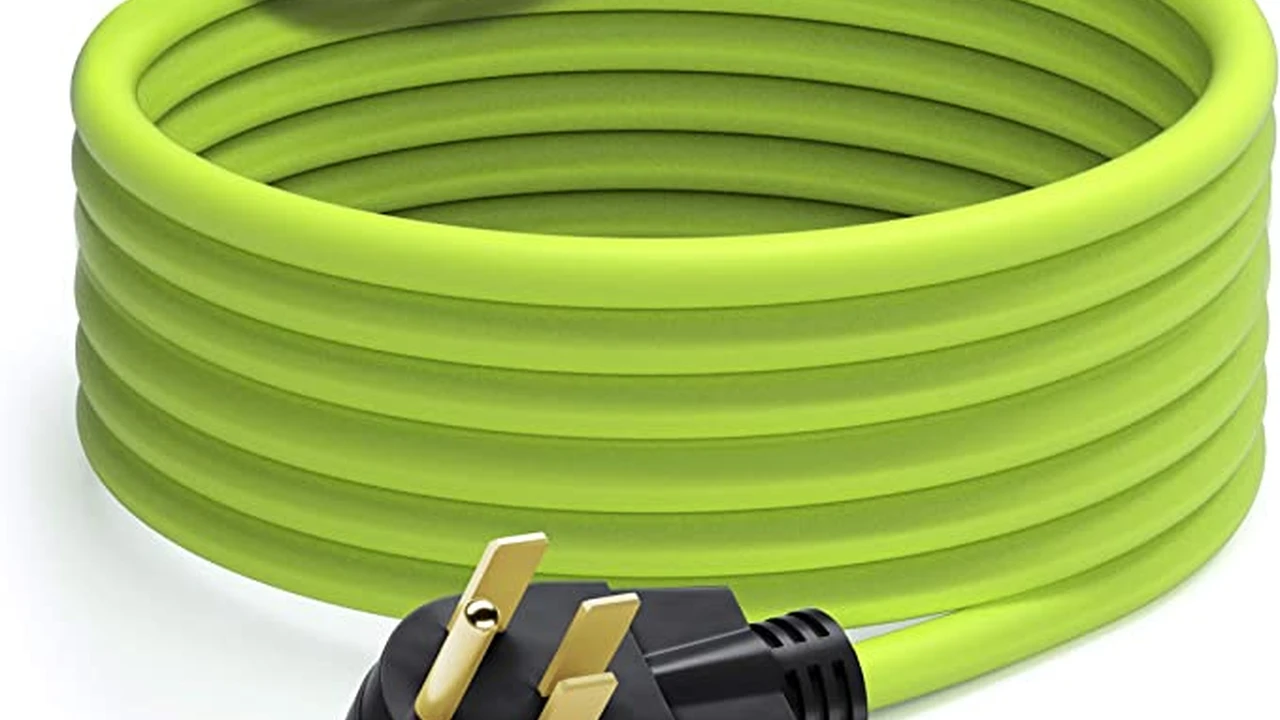7 Best Level 2 Home EV Chargers of 2024

Improve safety and efficiency with tire pressure monitoring systems (TPMS) for EVs Learn about the benefits of TPMS, including preventing tire blowouts and improving fuel efficiency Discover how TPMS can help you maintain optimal tire pressure.
Understanding Tire Pressure Monitoring Systems TPMS and Electric Vehicle Safety
So, you're driving an electric vehicle (EV)? Awesome choice! EVs are the future, and they're packed with cool tech. But did you know that something as seemingly simple as tire pressure can have a huge impact on your EV's safety and performance? That's where Tire Pressure Monitoring Systems (TPMS) come in. TPMS is designed to monitor the air pressure inside your tires and alert you when it falls outside the recommended range. This isn't just about getting the best gas mileage (or, in this case, the best range); it's about safety, preventing tire blowouts, and extending the life of your tires. Let's dive into why TPMS is so important for EVs.
The Importance of TPMS for Electric Vehicles Maximizing Range and Preventing Blowouts
Why is TPMS crucial for EVs? A few reasons. First, EVs are generally heavier than their gasoline-powered counterparts due to the battery pack. This extra weight puts more stress on the tires. Second, EVs often have higher torque, which can also impact tire wear. TPMS helps you maintain the correct tire pressure, which is vital for handling that weight and torque safely. When your tires are properly inflated, you'll experience:
- Increased Range: Underinflated tires create more rolling resistance, forcing your EV to work harder and reducing its range. Properly inflated tires minimize this resistance, allowing you to drive further on a single charge.
- Improved Safety: Low tire pressure can lead to overheating and, in extreme cases, tire blowouts. TPMS alerts you to low pressure, giving you time to inflate your tires before a dangerous situation arises.
- Extended Tire Life: Running on underinflated tires causes uneven wear, shortening the lifespan of your tires. TPMS helps you avoid this by ensuring your tires are always inflated to the recommended pressure.
- Enhanced Handling: Correct tire pressure improves your EV's handling and stability, especially in wet or slippery conditions.
How TPMS Works Inside Your EV Detailed Explanation of TPMS Technology
TPMS technology is pretty straightforward. There are two main types of TPMS: direct and indirect.
Direct TPMS
Direct TPMS uses sensors inside each tire to measure the actual air pressure. These sensors transmit the pressure data to your EV's computer, which then displays the information on the dashboard. If the pressure in any tire drops below a certain threshold, a warning light will illuminate. Direct TPMS is generally more accurate and provides real-time pressure readings.
Indirect TPMS
Indirect TPMS doesn't use physical sensors inside the tires. Instead, it relies on the EV's anti-lock braking system (ABS) to monitor tire rotation speed. When a tire loses pressure, its diameter decreases, causing it to rotate faster than the other tires. The ABS detects this difference and triggers a warning light. Indirect TPMS is less accurate than direct TPMS and may not detect gradual pressure changes. However, it's typically less expensive.
Choosing the Right TPMS for Your Electric Vehicle Considerations and Recommendations
Which type of TPMS is right for your EV? If your EV came with direct TPMS, stick with it. The accuracy and real-time monitoring are worth the investment. If your EV has indirect TPMS, you might consider upgrading to a direct system for improved performance. Here are some factors to consider:
- Accuracy: Direct TPMS is more accurate than indirect TPMS.
- Real-Time Monitoring: Direct TPMS provides real-time pressure readings, while indirect TPMS only alerts you when there's a significant difference in rotation speed.
- Cost: Direct TPMS is generally more expensive than indirect TPMS.
- Ease of Installation: Direct TPMS requires professional installation, while indirect TPMS is typically integrated into the EV's existing systems.
Specific TPMS Products for EVs Recommendations and Comparisons
Okay, let's talk about some specific TPMS products you can consider for your EV. Keep in mind that compatibility varies depending on your EV's make and model, so always check before you buy.
Orange Electronic P409S TPMS Sensor
This is a popular aftermarket direct TPMS sensor known for its reliability and wide compatibility. It's programmable, meaning it can be configured to work with a variety of different EV models.
- Key Features: Programmable, durable, wide compatibility, accurate pressure readings.
- Use Case: Replacing existing TPMS sensors or upgrading from an indirect system.
- Comparison: More affordable than OEM sensors, but requires programming.
- Price: Approximately $30-40 per sensor.
ATEQ VT56 TPMS Diagnostic Tool
If you're replacing or programming TPMS sensors yourself, you'll need a diagnostic tool like the ATEQ VT56. This tool allows you to read sensor data, program new sensors, and reset the TPMS system.
- Key Features: Comprehensive TPMS diagnostic capabilities, user-friendly interface, software updates.
- Use Case: Professional tire shops and DIY enthusiasts.
- Comparison: A professional-grade tool, more expensive than basic TPMS readers.
- Price: Approximately $1,000-$1,500.
Autel MaxiTPMS TS508 TPMS Service Tool
This is a more budget-friendly TPMS service tool compared to the ATEQ VT56. It offers many of the same features, including sensor programming and system resetting, at a lower price point.
- Key Features: Sensor programming, system resetting, user-friendly interface, affordable.
- Use Case: DIY enthusiasts and smaller tire shops.
- Comparison: Less comprehensive than the ATEQ VT56, but offers good value for the price.
- Price: Approximately $200-$300.
OEM TPMS Sensors
The safest bet is always to use Original Equipment Manufacturer (OEM) TPMS sensors specifically designed for your EV. These sensors are guaranteed to be compatible and will work seamlessly with your EV's TPMS system. However, they're typically more expensive than aftermarket options.
- Key Features: Guaranteed compatibility, reliable performance, seamless integration.
- Use Case: Replacing faulty sensors or ensuring optimal performance.
- Comparison: Most expensive option, but offers the best peace of mind.
- Price: Varies depending on the EV make and model, typically $50-$100 per sensor.
Maintaining Your EV's TPMS System Tips and Best Practices
To keep your TPMS system working properly, follow these tips:
- Regularly Check Tire Pressure: Even with TPMS, it's a good idea to manually check your tire pressure at least once a month. Use a reliable tire pressure gauge.
- Inspect TPMS Sensors: When you replace your tires, have the TPMS sensors inspected for damage.
- Replace TPMS Sensors When Necessary: TPMS sensors have a limited lifespan, typically 5-7 years. Replace them when they start to fail or when you replace your tires.
- Reset the TPMS System After Inflating Tires: After inflating your tires to the recommended pressure, reset the TPMS system according to your EV's owner's manual.
- Consult a Professional: If you're unsure about any aspect of your TPMS system, consult a qualified tire technician.
Troubleshooting Common TPMS Problems What to Do When the TPMS Light Comes On
What should you do if the TPMS light comes on in your EV?
- Check Your Tire Pressure: Use a tire pressure gauge to check the pressure in all four tires. If any tire is significantly underinflated, inflate it to the recommended pressure.
- Reset the TPMS System: After inflating your tires, reset the TPMS system according to your EV's owner's manual.
- If the Light Stays On: If the TPMS light remains on after inflating your tires and resetting the system, there may be a problem with one or more of the TPMS sensors. Consult a qualified tire technician.
- Consider a False Alarm: Sometimes, TPMS systems can trigger false alarms due to temperature changes or other factors. If you're confident that your tire pressure is correct, you can try resetting the system again.
The Future of TPMS in Electric Vehicles Innovations and Advancements
TPMS technology is constantly evolving. Expect to see even more advanced features in the future, such as:
- More Accurate Sensors: Improved sensor technology will provide even more precise pressure readings.
- Wireless Charging: TPMS sensors that can be wirelessly charged, eliminating the need for battery replacements.
- Integrated Data Logging: TPMS systems that can log tire pressure data over time, providing valuable insights into tire performance.
- Predictive Maintenance: TPMS systems that can predict potential tire problems before they occur, allowing for proactive maintenance.
Investing in TPMS for Your EV A Smart Choice for Safety and Efficiency
Investing in a properly functioning TPMS system is a smart choice for any EV owner. It's a relatively small investment that can provide significant benefits in terms of safety, efficiency, and tire life. So, make sure your EV's TPMS system is working properly, and enjoy the peace of mind that comes with knowing your tires are always inflated to the optimal pressure.
:max_bytes(150000):strip_icc()/277019-baked-pork-chops-with-cream-of-mushroom-soup-DDMFS-beauty-4x3-BG-7505-5762b731cf30447d9cbbbbbf387beafa.jpg)






